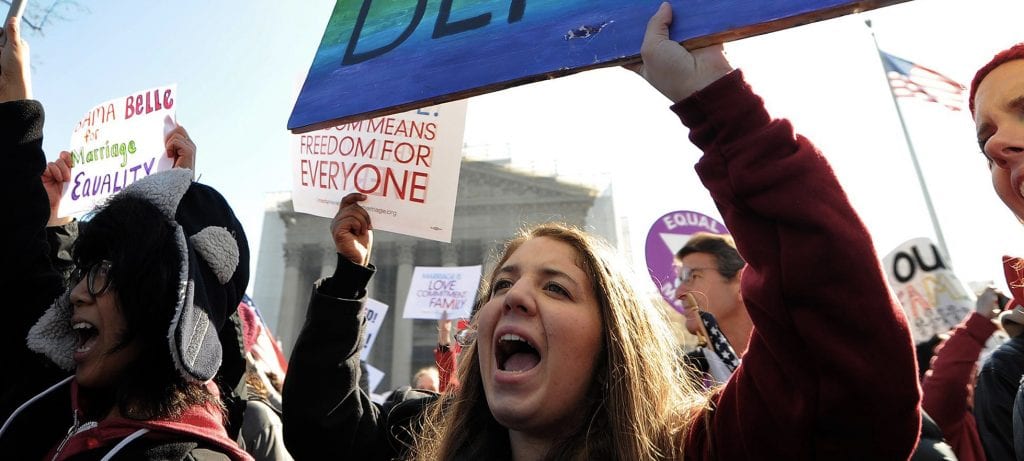
Yesterday, the United States Supreme Court heard oral arguments in Obergefell v. Hodges, the landmark gay marriage case which should answer the question of whether the Constitution requires states to a) allow same-sex couples to marry and b) if not, whether it requires the states to recognize those marriages legally performed in states that do allow same-sex couples to marry.
This is a huge historic case for families everywhere. I’m going to call it this way: The final decision comes out 6-3 holding that same-sex marriage bans are unconstitutional. Justice Kennedy will author the majority opinion in which Justices Breyer, Ginsburg, Kagen, and Sotomayor will join in that opinion. Chief Justice Roberts will author an opinion concurring in the judgment only on much narrower grounds. I wager either Alito or Scalia will write the dissent.
My reasoning is this, Kennedy will author one of his beautiful, but light on legal discourse opinions (like he has previously authored on other gay rights issues), in which he discusses the fundamental right of marriage and the necessity of conferring its dignity upon same-sex couples. As the swing vote, he will get to be the primary author. The four liberal justices will join in his opinion because it will resonate most strongly with their sense of social justice.
Chief Justice Roberts, much more the pragmatist than the ideologue, will write an opinion concurring that a state may not deny an individual the right to marry the individual of his or her choice, but he will base his opinion on the argument (largely ignored by most of the cases addressing this question) that this is an issue not of discrimination on the basis of sexual orientation (after all, a gay man and a lesbian can marry each other in all 50 states currently), but rather discrimination on the basis of gender. As Robert’s said during oral arguments, “I’m not sure it’s necessary to get into sexual orientation to resolve this case, I mean, if Sue loves Joe and Tom loves Joe, Sue can marry him and Tom can’t. And the difference is based upon their different sex. Why isn’t that a straightforward question of sexual discrimination?” Taking this tack will allow Roberts, as Chief Justice, to be on the winning side of one of the most pivotal decisions of his tenure as Chief Justice, while allowing him to avoid the question of whether sexual orientation should be a protected class, and to keep the focus of his opinion on clean legal distinctions.
The dissent will focus primarily upon the “traditional” definition of marriage as one man and one woman, and that the majority is wresting control away from the states by imposing a novel constitutional mandate.
I can’t wait until June to see if I’m right.

Appeals
Understanding Family Court Appeals In ColoradoFamily court decisions can have a significant impact on your life and the lives of your loved ones. Whether it’s a divorce, custody arrangement,…